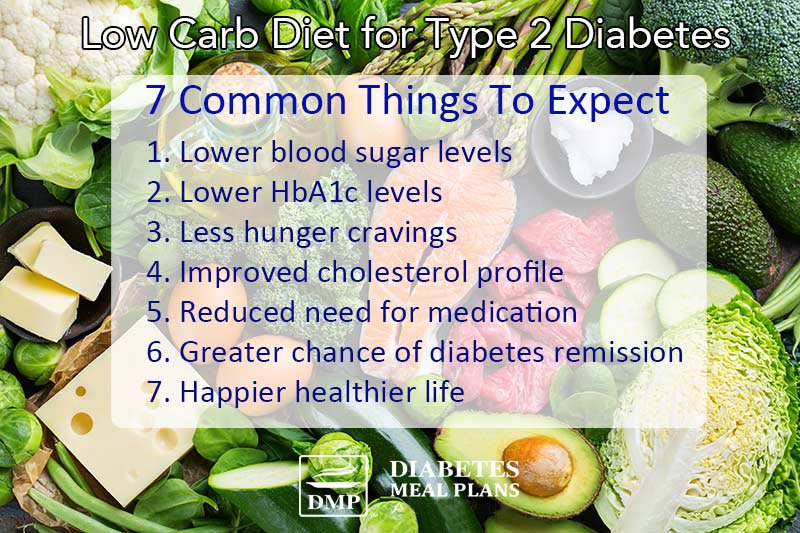A low carb diet for people with type 2 diabetes has become a more popular conversation in recent years, while not long ago it was thought of as highly controversial.
Over the years, many health organisations and practitioners have tried to ignore a low carb diet or claimed it as being controversial. Still, the popularity of a low carb diet has grown regardless. This is because there is now a large amount of scientific evidence that demonstrates its effectiveness for treating type 2 diabetes.
Despite it being considered controversial, we’ve been encouraging a lower carb eating plan for years. The evidence has always been there and it’s never been a surprise that carbohydrates are the nutrient that has the greatest influence on blood sugar and HbA1c levels—that’s been known for years.
It’s also nothing new to count or monitor carbohydrate intake in diabetes—those guidelines have been around for a very long time too.
If you’re considering a low carb diet to treat your diabetes, here’s 7 common things to expect.

1. Lower blood sugar levels
From time to time we run a 21 Day Lower Blood Sugar Challenge – a challenge that takes a group through daily guidance and shows people how easy it is to lower blood sugar levels in a short time by simply choosing the right carbohydrate foods and lowering overall carbohydrate intake.
In one of our recent challenges:
- 85% of participants lowered post-meal blood sugar levels
- 34% of participants lowered fasting blood sugar levels
In just 21 days!
Since carbohydrates have a direct influence on blood sugar levels, it’s easy to see better results by switching to lower carb foods — like lots of non-starchy vegetables instead of things like rice, pasta and potatoes.
2. Lower HbA1c levels
HbA1c is a blood test that measures the average amount of glucose (sugar/carbs) “on the blood” over a 3 month period.
When you lower your daily blood sugar averages, it’s a natural consequence to see HbA1c levels follow in the same direction.
3. Less hunger cravings
Eating high amounts of carbohydrate foods triggers metabolic and functional hormones, often in an unbalanced way. This can lead to increased hunger and cravings.
By lowering your carbohydrate intake and increasing protein and fat intake, your hormones can take a breather to balance out. Plus, protein and fat are more satisfying to the appetite than high carb foods.
4. Improved cholesterol profile
Most people will see an improved cholesterol profile overall – lower triglycerides and increases in HDL cholesterol.
5. Reduced need for medication
One of the most remarkable changes observed across studies that review low carb diets in people with type 2 diabetes, is the sustained reduction or elimination of anti-diabetes medications like Metformin. We’ve also seen people reduce their insulin requirements as well.
NOTE: You should never stop taking your medication, or change your dosages without first consulting with your doctor and/or healthcare team.
6. Greater chance of diabetes remission
A recent scientific paper on low carb diets for type 2 diabetes, found a 32% greater chance of remission of diabetes.
The fact that people now recognise that remission can be achieved is a fantastic step in the right direction. Lifestyle medicine is powerful!
7. Happier healthier life
We’ve been encouraging people with type 2 diabetes to follow a lower carb eating plan for many years now and in our experience, we’ve seen that people are so over the moon to bring their HbA1c down to a healthy range, and keep their diabetes and health managed with diet alone, or reduced medication needs.
By focusing on improving your diet, amazing changes can occur in your metabolism that reverse the effects of your health condition and get your bodies cells functioning better overall. You can live a ‘normal’ life with type 2 diabetes and much of that comes down to a few simple switches to your eating plan.
If you want to get started on a low carb diet, here’s a few resources to guide the way:

